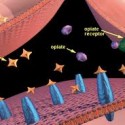Overcoming Guilt in Substance Abuse Treatment
For many addicts and those in recovery, the feelings of guilt and shame that surround their addiction are not only powerful, they are also the motivating factor that either makes or breaks their recovery efforts. When it comes to overcoming guilt, substance abuse treatment is the beginning of a long road that includes counseling and therapy as well as lots of hard work on the part of the recovering addict. But there is light at the end of the tunnel and overcoming guilt in substance abuse treatment can make all the difference in the long term recovery efforts for the individual.
Learning to Cope with Guilty Feelings Appropriately
You’ve made mistakes, you know what you are doing or what you have done is wrong and now you are feeling guilty about it. While not all recovering addicts will even feel guilty for their wrongdoing, for those that do the feelings of guilt can be overwhelming. You can’t just go back and fix everything that went wrong and no matter how hard you may try there are some things that you may feel guilty about that you just can’t fix.
Substance abuse treatment centers can help you to learn how to deal with these feelings of guilt in a more appropriate way. While your guilt may not be enough to FORCE you to make a full recovery or to stop using drugs, these feelings of guilt can be the driving force that helps to remind you how important it is for you to continue with your addiction treatment and get the help that you need. Substance abuse treatment centers can help you to better understand the guilt that you are feeling, learn how you can use that to your recovery advantage and also learn what parts of the guilt that you feel should be let go so that you can move on.
Some People Don’t Feel Any Guilt
A common problem with addiction is that some addicts simply don’t think that they are doing wrong and they don’t actually feel guilty. While this may make doing the drugs easier, it doesn’t necessarily help when it comes to friends and family members who are hurt as a result of your lack of feeling. While you may not realize that you are causing pain or that you did cause pain for a loved one as a result of your addiction, that individual who was hurt will realize and remember that pain for a very long time. Because there can be so much trauma as a result of an addict not feeling guilty about their addiction or wrongdoing, many substance abuse treatment programs provide additional family and relationship counseling to help heal these wounds.
Additionally, if you don’t feel guilty then there’s a chance that you won’t feel like you need help or like you have a substance abuse problem. Unfortunately, even if you don’t realize that you have a problem with substance abuse there’s a very likely chance that you do. Substance abuse treatment centers can help you to realize the wrongdoing that you have taken part of and also learn how you can overcome the addiction and reverse the wrongs that you have done.
Feelings of guilt can actually be a breaking point for you if you are addicted to drugs. Sometimes, it’s the guilty feeling that causes you to make the phone call for help. Other times, your guilt is what makes you strive harder to get well and right the wrongs that you have caused. Regardless of how your guilt works, substance abuse treatment centers can help you to better understand the guilt you may (or may not) be feeling and use it to your advantage in recovery. For more information or for help finding a substance abuse treatment center near you call 1-888-461-2155 to speak with a referral specialist.
